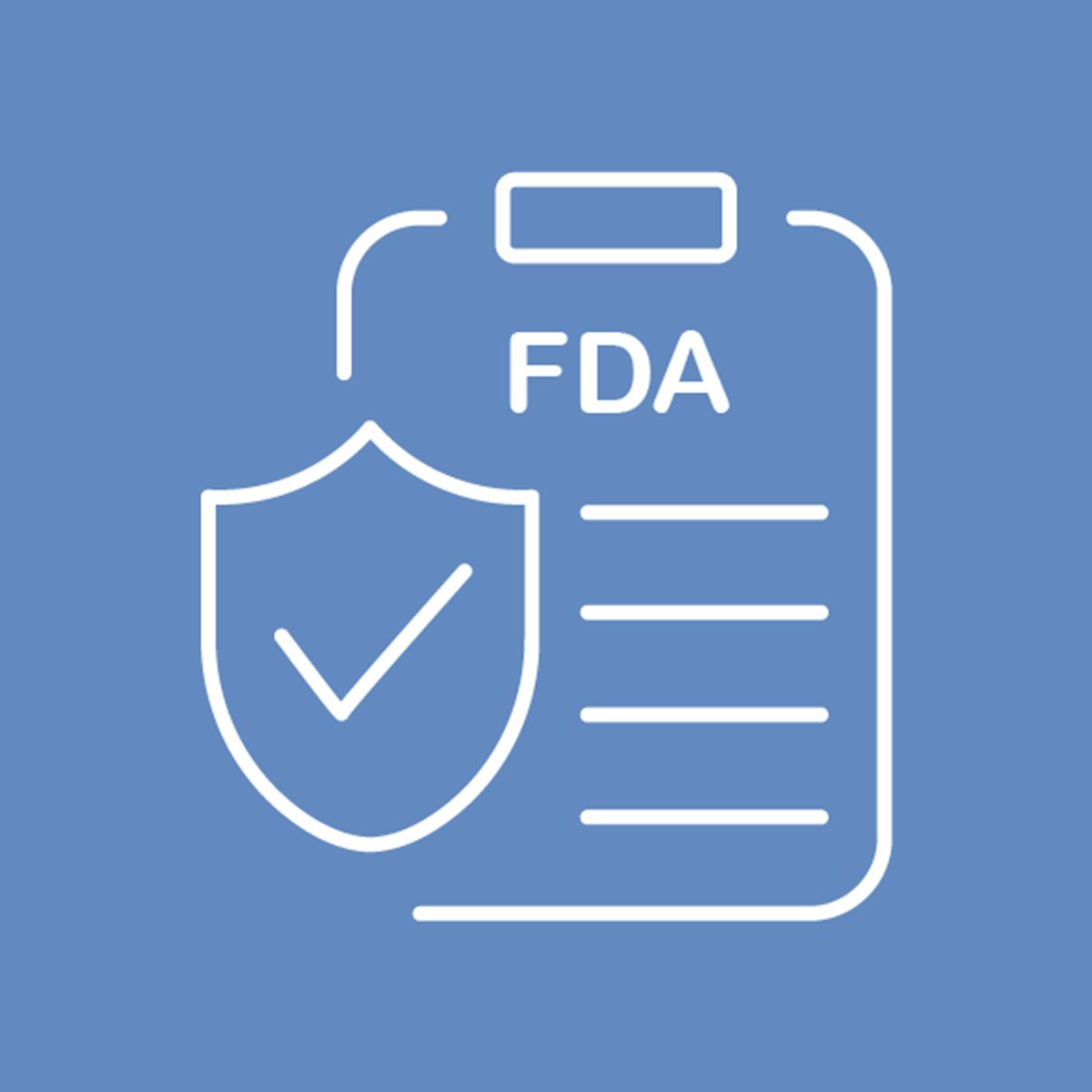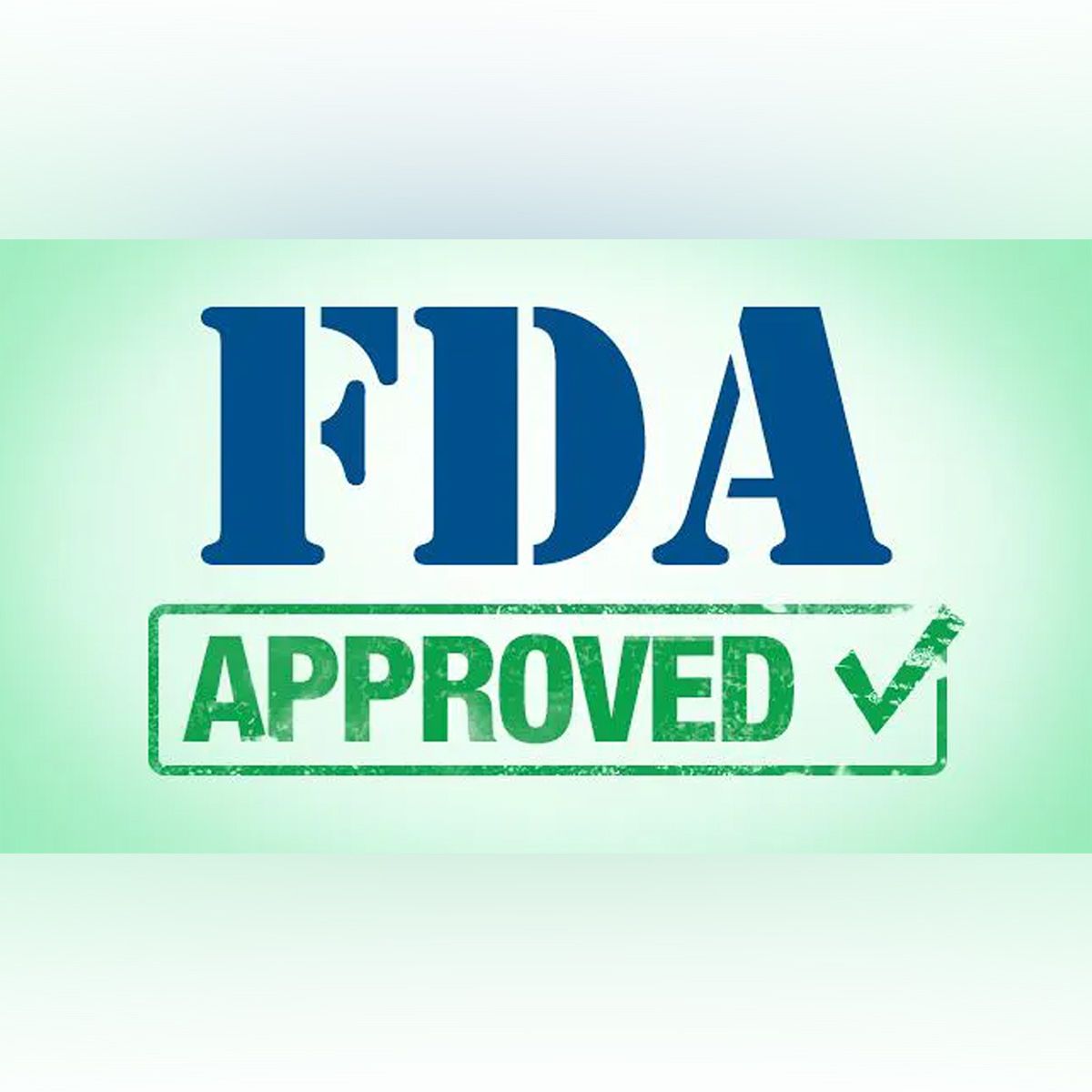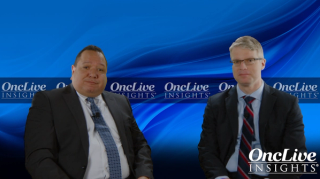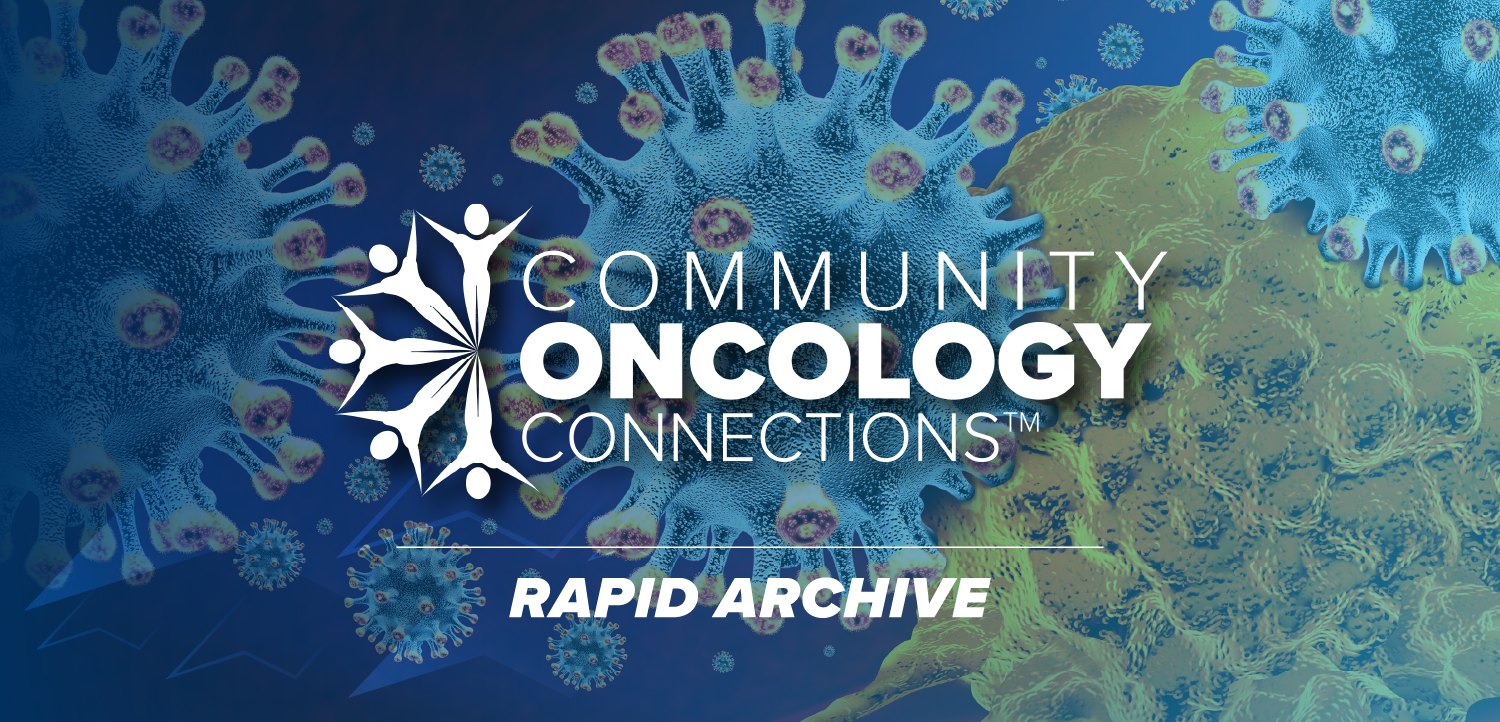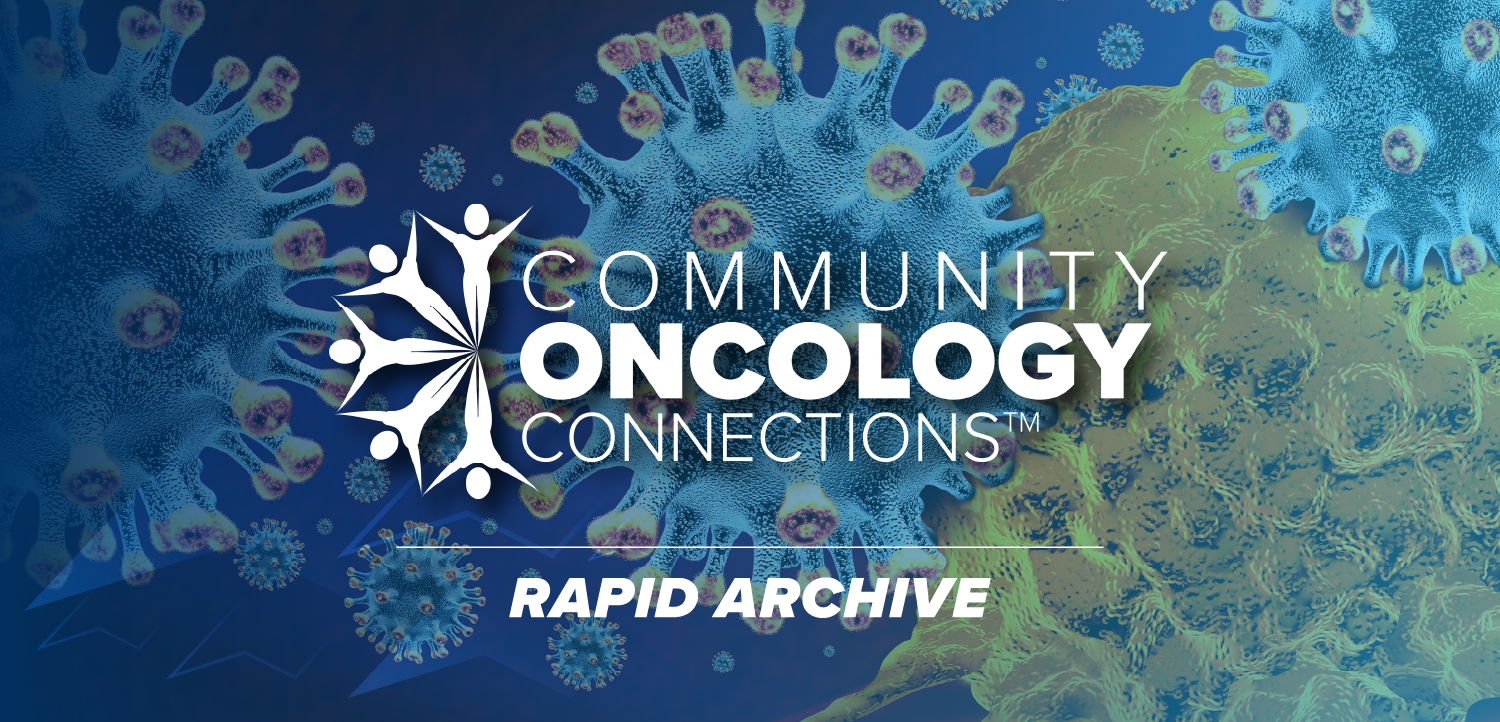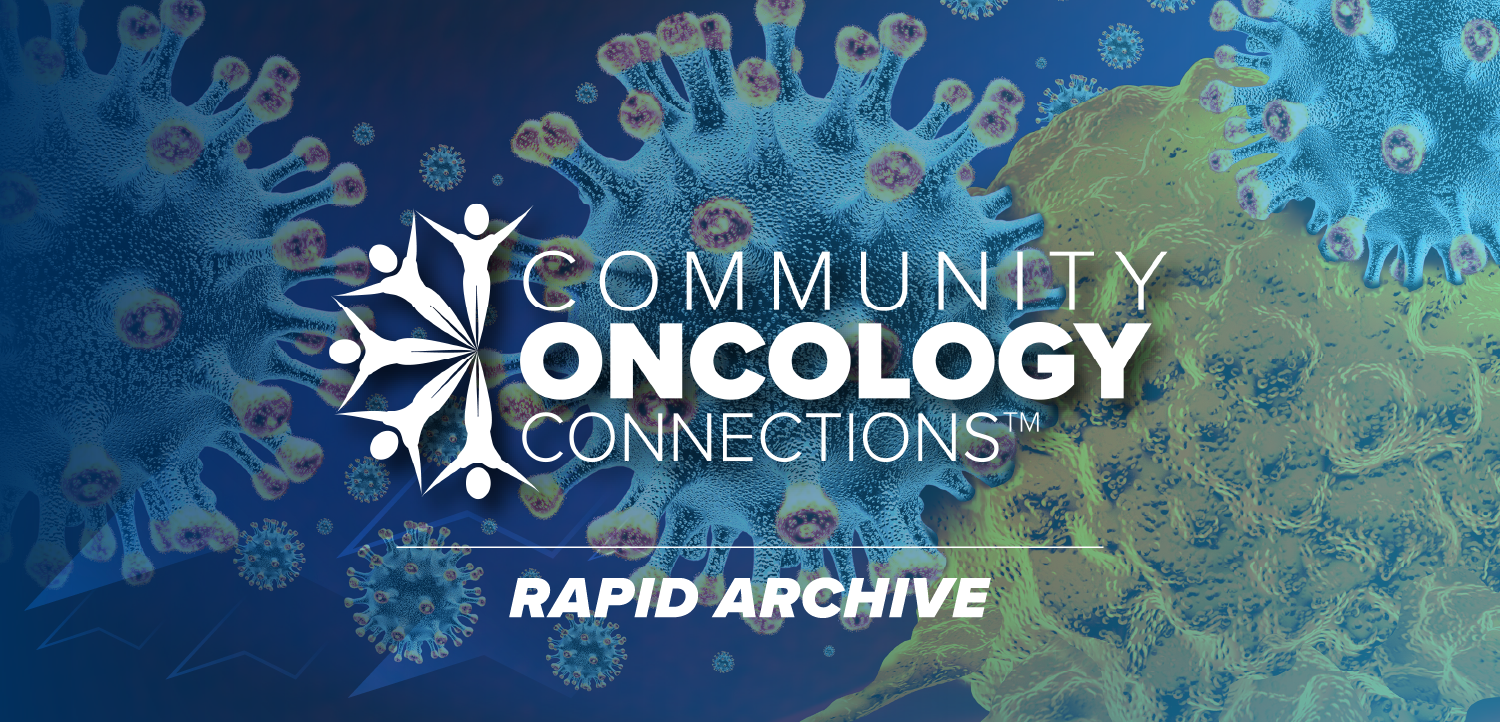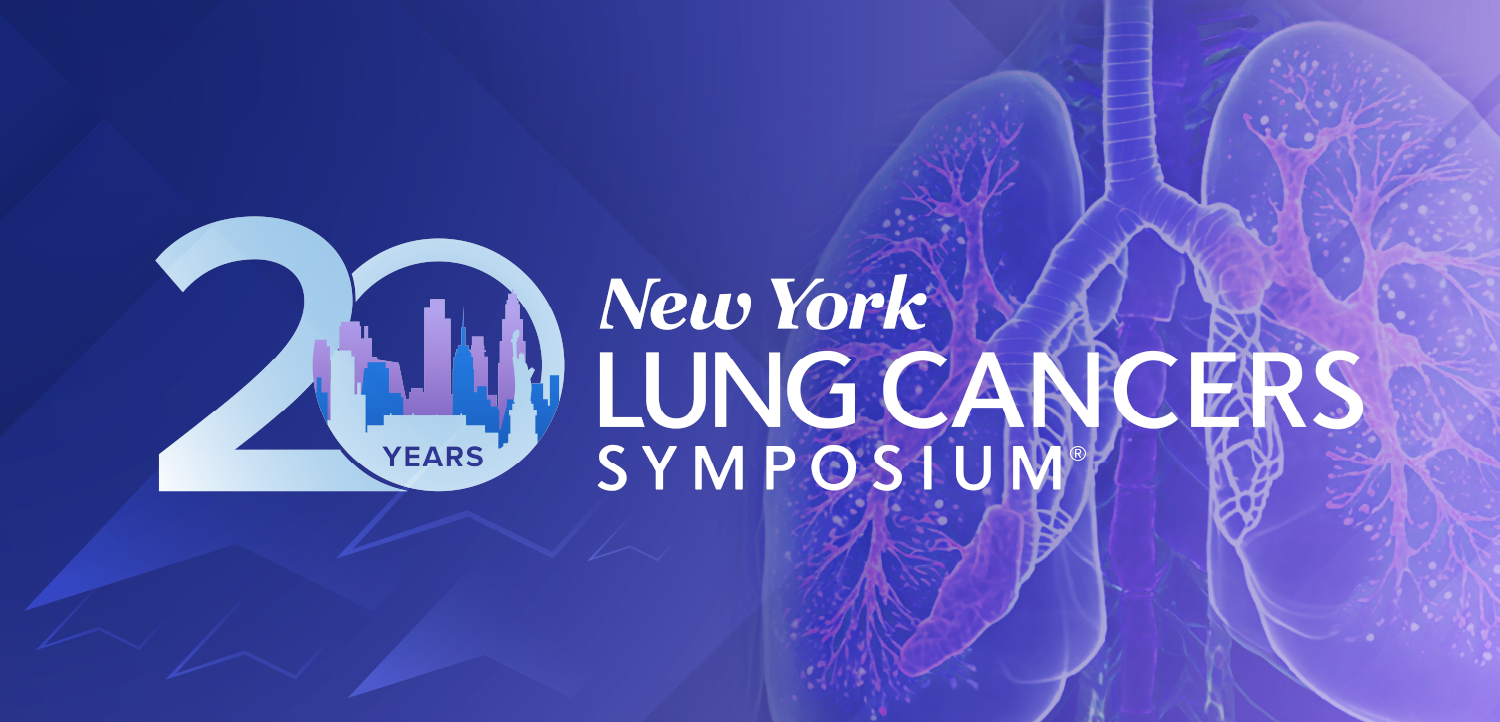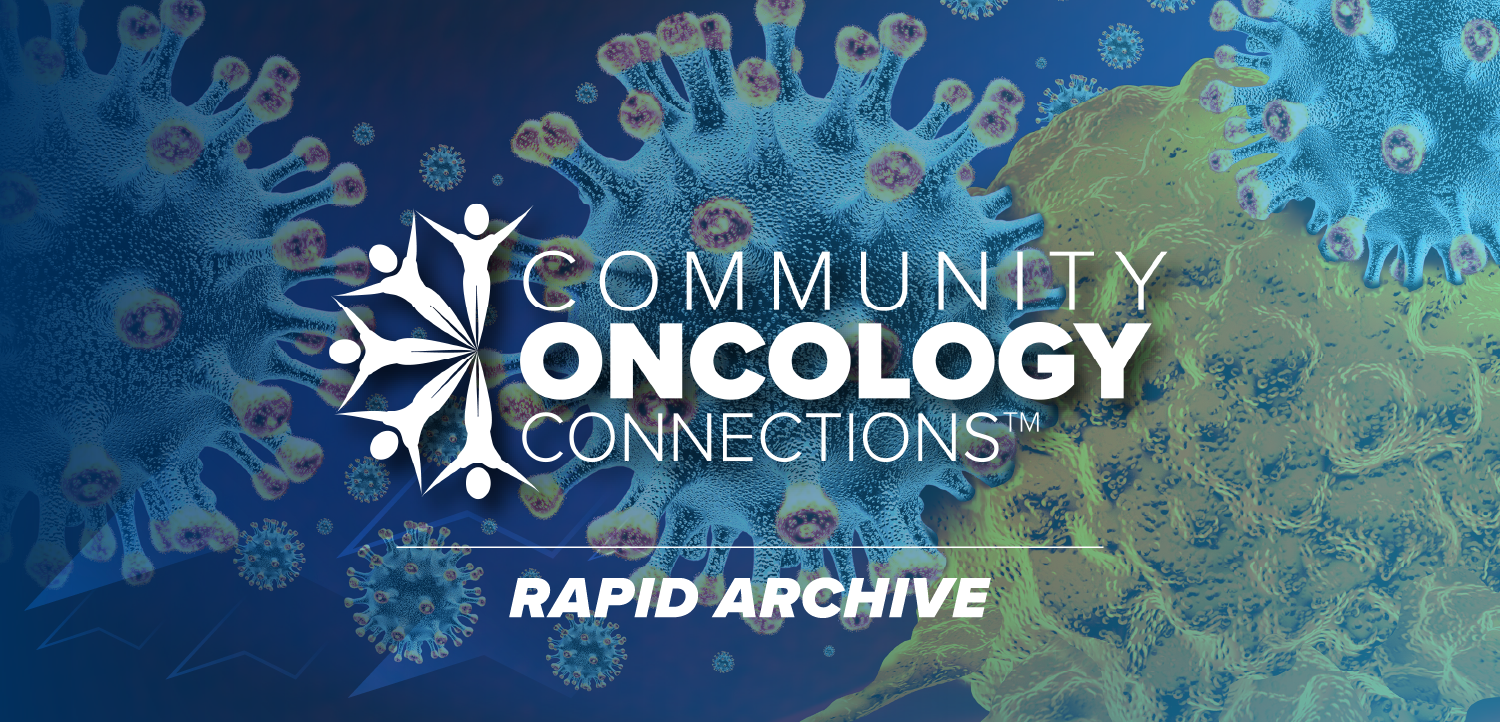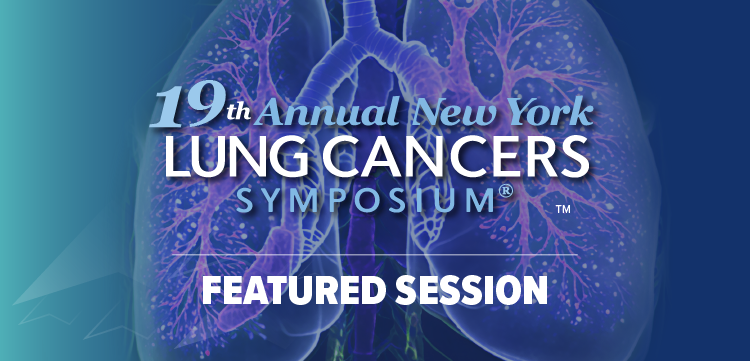
Lung Cancer
Latest News
Latest Videos

CME Content
More News

A phase 2 trial found that pembrolizumab plus pemetrexed met its objective response rate primary end point.

Similar to financial toxicity, time toxicity can have a profound impact on a patient’s quality of life.

Serial CTRS, an AI-powered tool, has been granted FDA breakthrough device designation for classifying patients with NSCLC.

Zipalertinib demonstrated efficacy in pretreated NSCLC with EGFR exon 20 insertion mutations, meeting the primary endpoint of ORR in the REZILIENT1 study.

Patients receiving ponsegromab experienced significantly greater weight gain and physical activity than those receiving placebo.

Sunvozertinib received FDA priority review for advanced EGFR exon 20 insertion-positive non-small cell lung cancer progressing after chemotherapy.

Amivantamab and lazertinib improved overall survival compared to osimertinib as a first-line treatment for advanced or metastatic EGFR-mutant NSCLC.

While the phase 2 trial did not meet its primary endpoint, it demonstrated that SBRT plus concurrent radiotherapy yielded better results than those observed in previous studies.

Beth Sandy, MSN, CRNP, FAPO, led a discussion on EGFR-mutated non-small cell lung cancer, focusing on targeted therapies for those with advanced, treatment-naïve disease.

Durvalumab improved progression-free survival in unresectable NSCLC patients without progression post-chemoradiotherapy, reducing disease progression risk by 25% compared to placebo.

Pembrolizumab plus chemotherapy significantly improved 4-year OS and EFS in resectable early-stage NSCLC compared to chemotherapy alone.

Zongertinib achieved a 71% objective response rate and 93% disease control rate in patients with HER2-mutant NSCLC at a dose of 120 mg.

Nivolumab and hyaluronidase-nvhy (Opdivo Qvantig) was approved by the FDA for subcutaneous injection across approved solid tumor indications for nivolumab (Opdivo).

APPs provide an in-depth look at amivantamab plus lazertinib for the treatment of patients with locally advanced or metastatic non–small cell lung cancer.

Ensartinib has received FDA approval for the first-line treatment of ALK-positive locally advanced or metastatic non–small cell lung cancer.

The agency granted approval to durvalumab for the treatment of a subset of patients with limited-stage small cell lung cancer.

Zenocutuzumab received accelerated approval from the FDA for the agent to treat non-small cell lung cancer (NSCLC) or pancreatic adenocarcinoma (PDAC) harboring an NRG1 gene fusion.

Based on findings from a phase 2 expansion cohort, the FDA granted breakthrough therapy designation to sacituzumab tirumotecan for use in select patients with EGFR+ non–small cell lung cancer.

According to the American Lung Association, biomarker testing gaps and low screening rates continue to hinder lung cancer survival; however, rates have improved in the last 5 years regardless.

Subcutaneous pembrolizumab plus chemotherapy was noninferior to IV pembrolizumab plus chemotherapy in treatment-naïve non-small cell lung cancer.

The FDA received a biologics license application for datopotamab deruxtecan for previously treated EGFR-mutant non-small cell lung cancer.

Adding E-602 to cemiplimab demonstrated anti-tumor effects in patients PD-L1–resistant solid cancers.

Nurse navigators and APPs are key members of the multidisciplinary team who can lead and implement QI efforts to ensure timely and effective biomarker testing for patients with early-stage NSCLC.

The FDA extended the Prescription Drug User Fee Act date for the biologics license application seeking approval of zenocutuzumab for NRG1-positive lung and pancreatic cancer.

An ad-hoc analysis found a higher rate of severe and life-threatening infections in patients with RET-mutant lung cancer treated with pralsetinib.

